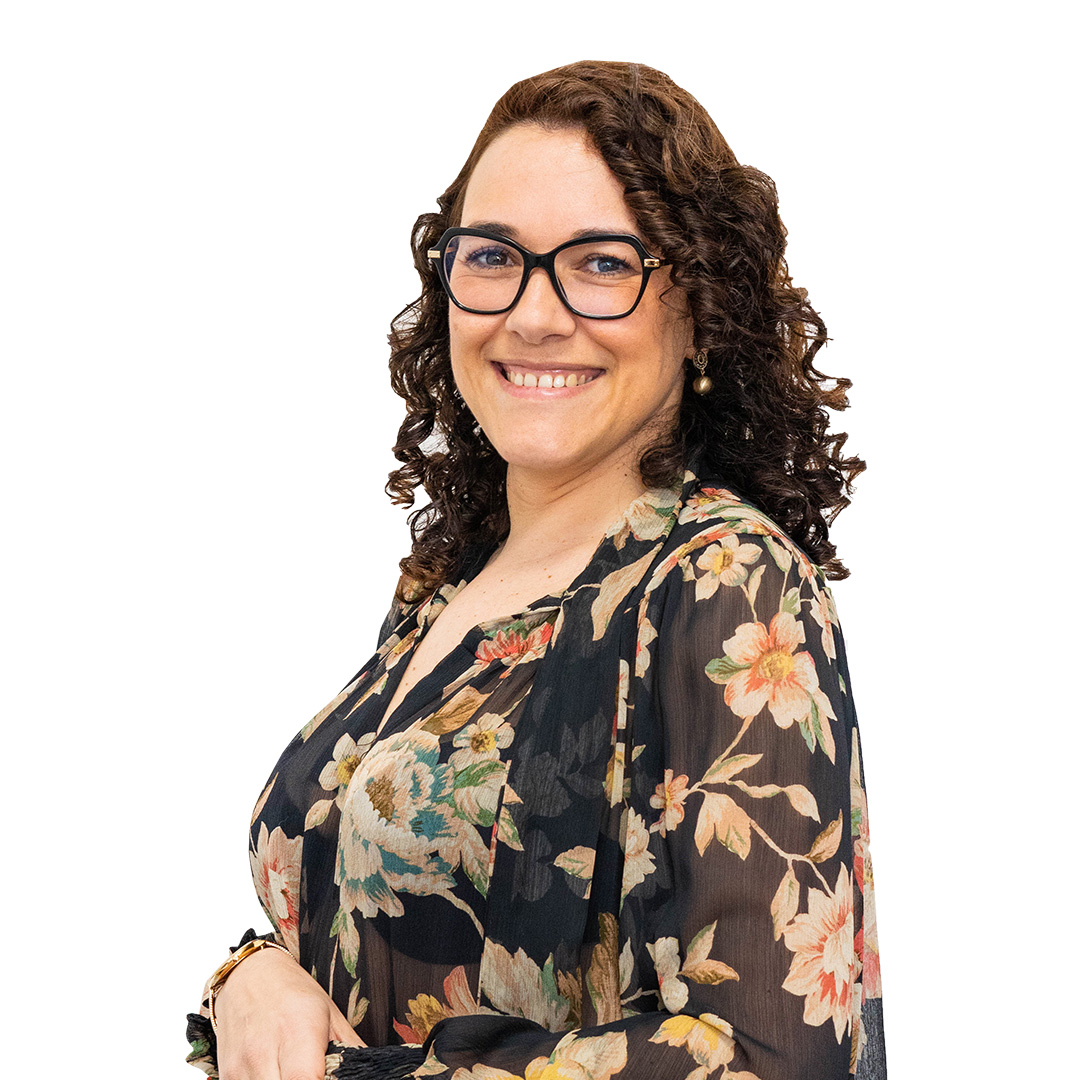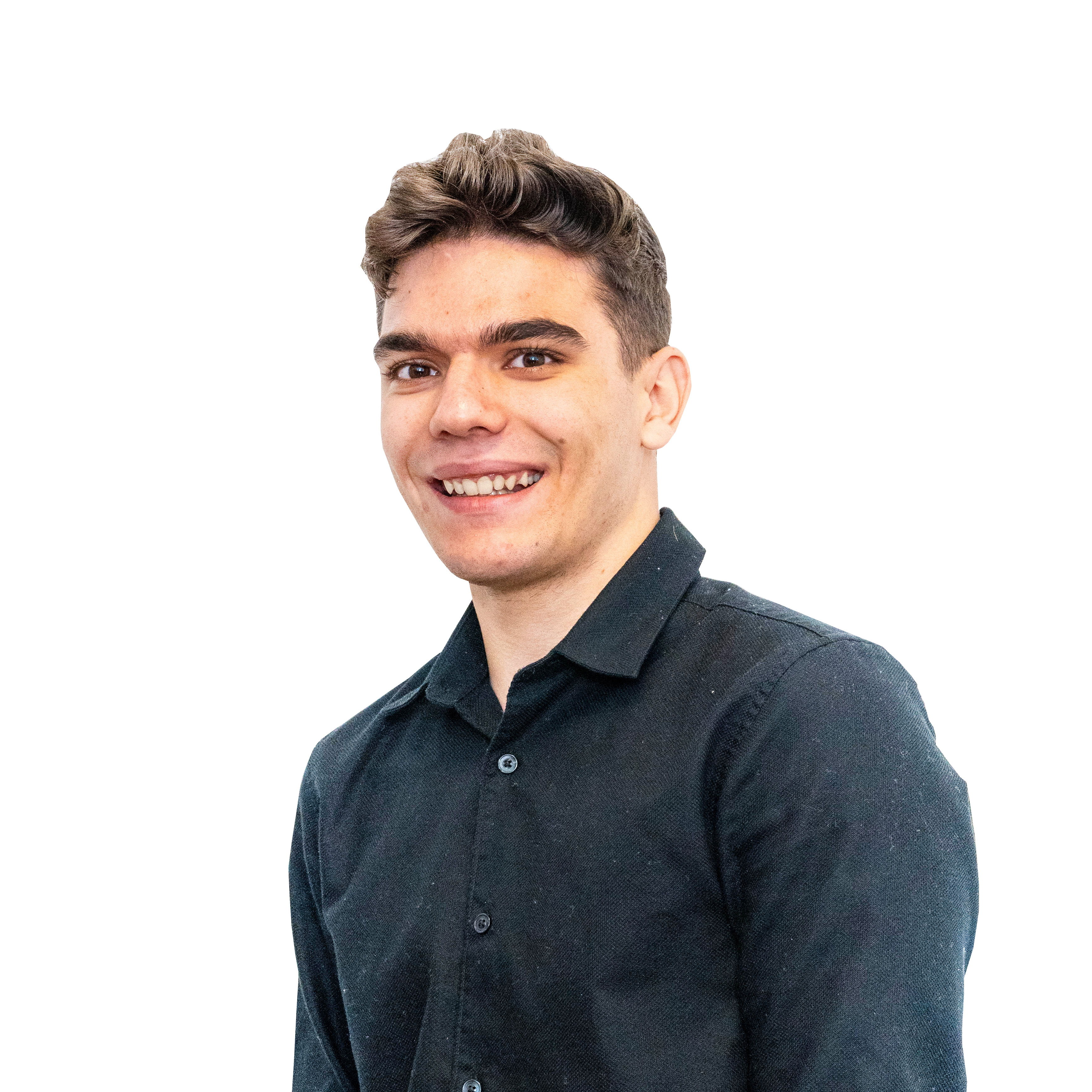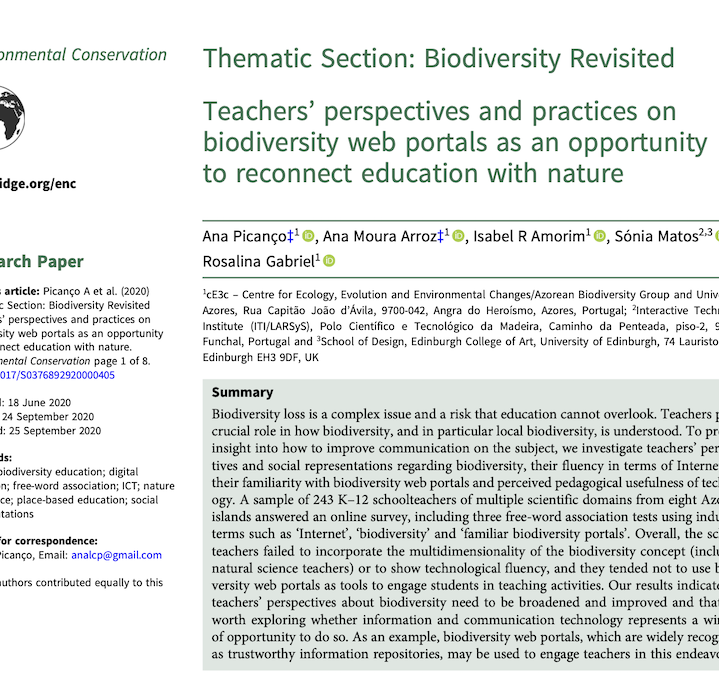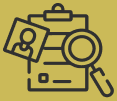
| Acronym: | PTDC/CED-EDG/31182/2017 |
| Cost Center: | 756 |
| Title: | Field Guide: Interactive Mobile Tools for Location-Based Learning (Field Guide) |
| Start-End: | 01-10-2018 - 30-09-2022 |
| Entidade Beneficiária Principal: | Fundação Gaspar Frutuoso |
| Gestores da FGF: | Lúcia Cláudio, Ricardo Figueira |
| Responsible Researcher: | Rosalina Maria De Almeida Gabriel |
| Organic Units: | FCAA - Faculdade de Ciências Agrárias e do Ambiente |
| R&D Units: | GBA-cE3c - Grupo de Biodiversidade dos Açores |
| Entidade | Montante |
|---|---|
| Fundação para a Ciência e Tecnologia (100.0 %) | 62.340,35 € |
Main Objectives:
Focused on the Terceira Island Natural Park, the project will consist of a context-sensitive mobile application that will support users in the exploration of relevant scientific information linked to species and specific locations of the park. Blending site-based pedagogy, user experience design and science education, the Field Guide project will promote the greater importance of learning, technology and outdoor learning in improving science literacy levels among a younger generation. Our goal with Field Guide is to demonstrate that technology can support more active and meaningful experiences for those who participate in contextually situated educational projects.
Project Description:
The Field Guide project aims to improve the levels of scientific literacy of children and young people living in the Azores archipelago. With one of the lowest school success rates in Portugal, this project will combine location-based learning and context-aware mobile technology to promote more active and meaningful learning experiences in the region. By designing a mobile electronic field guide, the project will offer the younger generation the opportunity to explore, learn and monitor their immediate environment. Designed to interact with existing biodiversity portals and their databases, the mobile electronic field guide that will be designed for the project will use the power of context-aware technology to shape young people's understanding of the natural world, at the same time which raises awareness of one of the main ones - oceanic island ecosystems.
Results:
Thus, the theoretical framework, methodologies and practical results proposed by the project reflect recent disciplinary debates in the fields of pedagogy, educational design and the study of scientific literacies. Intended to also contribute to the regionalization of the curriculum in the Azores, the tools that will be designed within the scope of the Guia de Campo project will serve to collect and analyze data through a set of workshops that will be developed in collaboration with the schools of Terceira Island. By directly involving students in exploring their immediate environment, the Field Guide project will connect a younger audience to important scientific knowledge and concepts that are age-appropriate. Building on the importance of developing a science curriculum that builds on recent pedagogical innovations such as site-based learning, phenomenon-based learning and project-based learning, the work that will be developed with local schools will also promote the use of information and technologies. of communication in the context of the Azorean public school system.




